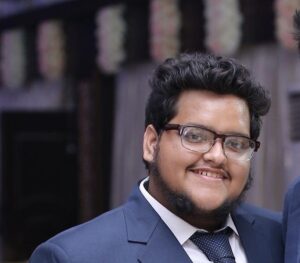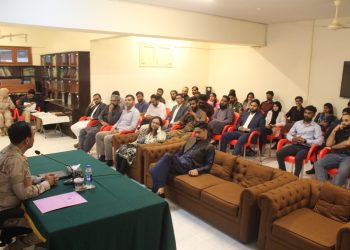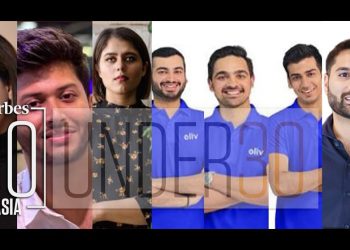
Muhammad Fuzail Javed
We all are familiar with the fact that the world has become a global village. Today, we are living in a society that comprises of various ethnicities and cultures. It is no denying the fact that there are several benefits that emerge from multicultural environments, for the diversity of the races, cultures, as well as traditions make the society unique as well as attractive.
Technology and social media have revolutionised the twenty-first-century. We as Pakistani citizens have to prepare our next generation for a tolerant place. We all should do something for the future to value. We need to ground ourselves not only in our own cultures but also we must approach other cultures in order to understand, represent, and evaluate the remarkably national conditions. When we are exposed to distinctive customs of life, we gain an enormous extent of feelings and lives to discover. This can happen in both a personal and professional approach.
I am writing this so that you see that meeting diverse races each day is an inordinate treat to be progressive and to acquire an astounding life. It should be a pleasing experience to live in a world that comprises a mixture of several cultures. One of the major benefits is that the inhabitants learn much tolerance on other ethnicities as well as customs. In addition, living in a multicultural social setting may offer an individual the opportunity to enlarge one’s cognitive thinking and also to gain knowledge of remote cultures. Therefore, a multicultural society gives an individual an upper hand in understanding new cultures which raise one’s awareness with regard to the issues of the world. It is also a human desire to acquire new experiences as well as broad knowledge which is well offered by living in a multicultural social setting.
With today’s globalisation, connecting people from different parts of the world, societies have become increasingly multicultural. In many ways, it should be seen as a multicultural mosaic, where each culture has a say in creating the picture shown to the world. We need to focus on how every society, living side by side, has to fit and adapt to each other. In the beginning, people may find it difficult to live next to people with another culture for the fear that their norms would crash, and create a divide between them. However, they should try to adapt to each other to live peacefully. In order for a society to function, the different parts, or people, have to co-operate.
The impulse to compare is an elementary human attribute. I consider comparison is stimulating and inspiring. Considering the way we are both comparable and diverse makes us better understand the nuances of both
experiences whilst indorsing empathy.
But where we see multiple benefits, there are few narrow-minded people who think that the culture of the host society would fade away as a result of multiculturalism so they oppose embracing different cultures. Such people view and present ethnic diversity in a manner that affects social trust negatively. The proponents of such arguments support the ideology of differentials, which is a belief that there is a need to differentiate between different ethnicities and cultures in a multicultural society. They are of the view that dissimilar ethnic groups and cultures are unable to coexist. They further amplify their fears by promoting that a multicultural society brings about cultural differences that may divide society. Whereas the major reason behind such division is that one cultural group has a feeling that its religion and culture are superior as compared to the other groups. As a result, ethnic minorities suffer from racial disadvantages in a multi-ethnic setting. It is not only the adults who face this injustice but even the children are not spared and we see this discrimination in the non-provision of basic facilities such as the children’s right to education.
Children from minority ethnic groups many a time underperform due to them being in an unfamiliar environment with less recognition of their existence. Therefore, due to cultural differences in a multi-ethnic setting, there is a division in society. It pains me to discover that there are people amongst us who are so discriminating. There is no impairment in taking some time to understand the other person so that one can reduce the chance of distress, nevertheless, I still desire to imagine that the world is a better place when we feel positive about someone notwithstanding his/her cultural upbringing. In actuality, there are people out there who are far superior to who we contemplate they are. We simply fail to realise it for the tags we set before them. It is all about judgment, I presume. We give less significance to certain populaces just because of how they appear. Occasionally, we fail compassion and we are oblivious of it. We should be recapped that multiplicity is not a burden to living liberally but a venture to contact the world.
Despite having the intention of adapting, cultural differences can create a gap between people. Ignorance and prejudice might be two of the reasons why people find it hard to communicate with others, or do not want to learn more about their neighbouring cultures. As a consequence, we stay away from our neighbours, not wanting to learn about their culture. We think that cultural differences act as a dividing power between people. We should try to understand how people in developed countries, despite being aware of the differences in norms and traditions, choose to overlook them.
One can learn much by living in a multicultural society. We should write discourses as well as make movies to try to teach people about the importance of understanding various cultures. We need to focus on how finding the similarities unite people, whereas how not paying attention to other people’s traditions can make adapting even harder. The lesson is, therefore, to try to pay attention to different cultural norms, because when one has knowledge about other people’s cultures, it is easier to understand the different points of view.
We can write stories set in a multicultural country, showing various approaches on how to handle cultural differences. As a consequence, one has to take into account the variety of norms and traditions when communicating with others and trying to make a country work as a whole. Acquaintance with one’s own tradition is vital, nevertheless what is crucial is sympathy to what the country entails at the moment. It is that realization that makes an individual look external to his own cultural oyster into beneficial facets of other cultures. We should be open to other cultures in order to appreciate, replicate, and review the exceptionally national as well as international situations that are being represented in the written works as well as through electronic media. All inhabitants of Pakistan must go through the course of finding how the “us” and “them” break down and develop into “we, the people of Pakistan.” We need to keep reminding ourselves that the developed countries do not exemplify one culture but integration of their various cultures.
The people of Pakistan need to break out of cultural nuisances. We need to decenter our thought. We all need to believe that cultural conflicts take on several forms and have happened in the past too. So all we need is to find out the way to be more open-hearted. It is not only the responsibility of the government. Every individual should perform her/his specific role. History shows that the young generation, especially the students, have always performed an imperative function in improvements and revolts in society. Therefore certainly, students, teachers, working men and women, and also homemakers can and do play a central responsibility in rejoining, inspiring, and supporting the logic of acceptance despite differences amongst the people. We must be more concerned with the forthcoming times.
Instead of critiquing, we should generate new love and hope amongst all. When the requirement is to accede to our heritages without rebuffing other cultures; we should not attempt to shape ourselves opposing other cultures. We do not want a denunciation of other people in our society, as that would segregate Pakistani people. I, therefore, request for unification with all cultures. We may not want to criticise but we do need to construe the beliefs of our people in minority. As thoughtful national individuals, we need to record the concern, anguish, and irritation of the people living as a minority. Instead of facing a manuscript reviewing history, life, activities, or cultures, we make learning easier by moving a step ahead and trying to understand other ethnicities and cultures and then we live life to the maximum by uniting and involving with people around us. We must avoid the use of markers as these just make the situation worse. To sum this up, living in a society which is multi-ethnic and multi-culture has many advantages for it gives individuals a chance to experience various ways of living through the acquisition of other people’s language, customs, behaviours as well as art.














































